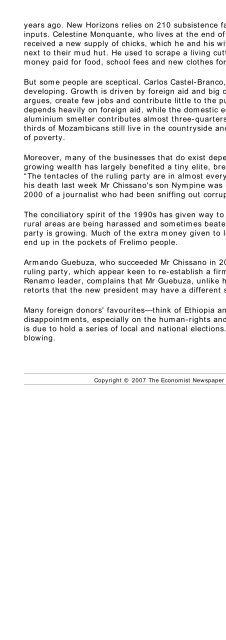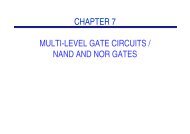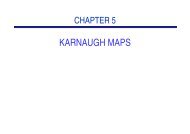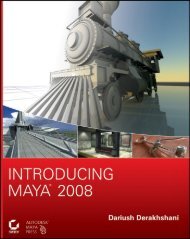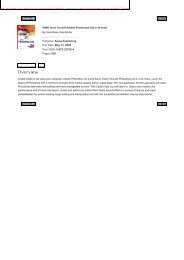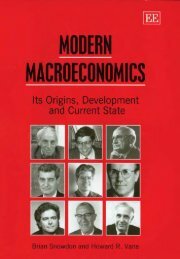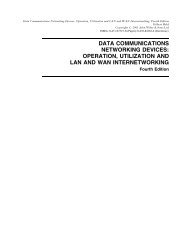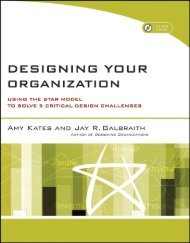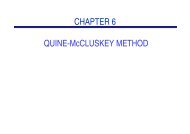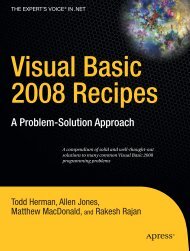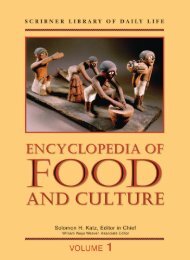The Economist December 1st 2007 - Online Public Access Catalog
The Economist December 1st 2007 - Online Public Access Catalog
The Economist December 1st 2007 - Online Public Access Catalog
- No tags were found...
You also want an ePaper? Increase the reach of your titles
YUMPU automatically turns print PDFs into web optimized ePapers that Google loves.
years ago. New Horizons relies on 210 subsistence farmers to raise chickens, providing training andinputs. Celestine Monquante, who lives at the end of a dirt road about 37km east of town, has justreceived a new supply of chicks, which he and his wife will rear for about a month in a coop they builtnext to their mud hut. He used to scrape a living cutting wood to make charcoal. Last year, chickenmoney paid for food, school fees and new clothes for Mrs Monquante.But some people are sceptical. Carlos Castel-Branco, a local economist, says the economy is not reallydeveloping. Growth is driven by foreign aid and big capital-intensive foreign investments, which, heargues, create few jobs and contribute little to the public purse. After two decades, Mozambique stilldepends heavily on foreign aid, while the domestic economy has failed to develop or diversify. <strong>The</strong> Mozalaluminium smelter contributes almost three-quarters of the country's exports. Meanwhile, some twothirdsof Mozambicans still live in the countryside and depend on small-scale farming, drifting in and outof poverty.Moreover, many of the businesses that do exist depend on political patronage. So far, the country'sgrowing wealth has largely benefited a tiny elite, breeding resentment among the small middle class.“<strong>The</strong> tentacles of the ruling party are in almost every sector of the economy,” says a local journalist. Untilhis death last week Mr Chissano's son Nympine was being investigated in connection with the murder in2000 of a journalist who had been sniffing out corruption.<strong>The</strong> conciliatory spirit of the 1990s has given way to a less tolerant stance. Renamo says its supporters inrural areas are being harassed and sometimes beaten up. <strong>The</strong> pressure on civil servants to join the rulingparty is growing. Much of the extra money given to local authorities for economic development is said toend up in the pockets of Frelimo people.Armando Guebuza, who succeeded Mr Chissano in 2005, draws support from more radical factions of theruling party, which appear keen to re-establish a firmer grip on power. Afonso Dhlakama, the livelyRenamo leader, complains that Mr Guebuza, unlike his predecessor, is not a man of dialogue. Frelimoretorts that the new president may have a different style but his policies are the same.Many foreign donors' favourites—think of Ethiopia and Uganda—have recently proved to bedisappointments, especially on the human-rights and political front. In the next two years, Mozambiqueis due to hold a series of local and national elections. <strong>The</strong>y will show which way the wind of democracy isblowing.Copyright © <strong>2007</strong> <strong>The</strong> <strong>Economist</strong> Newspaper and <strong>The</strong> <strong>Economist</strong> Group. All rights reserved.


